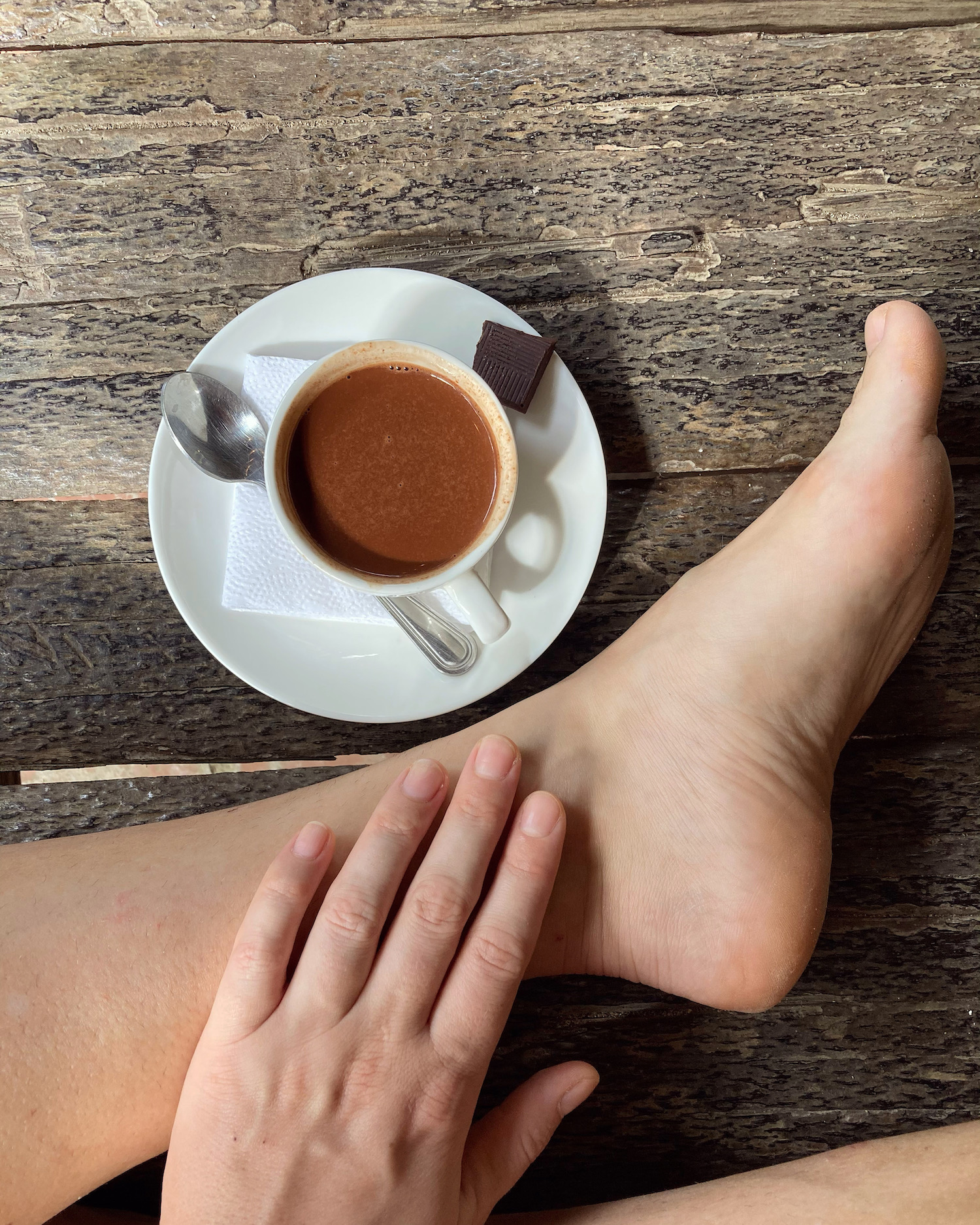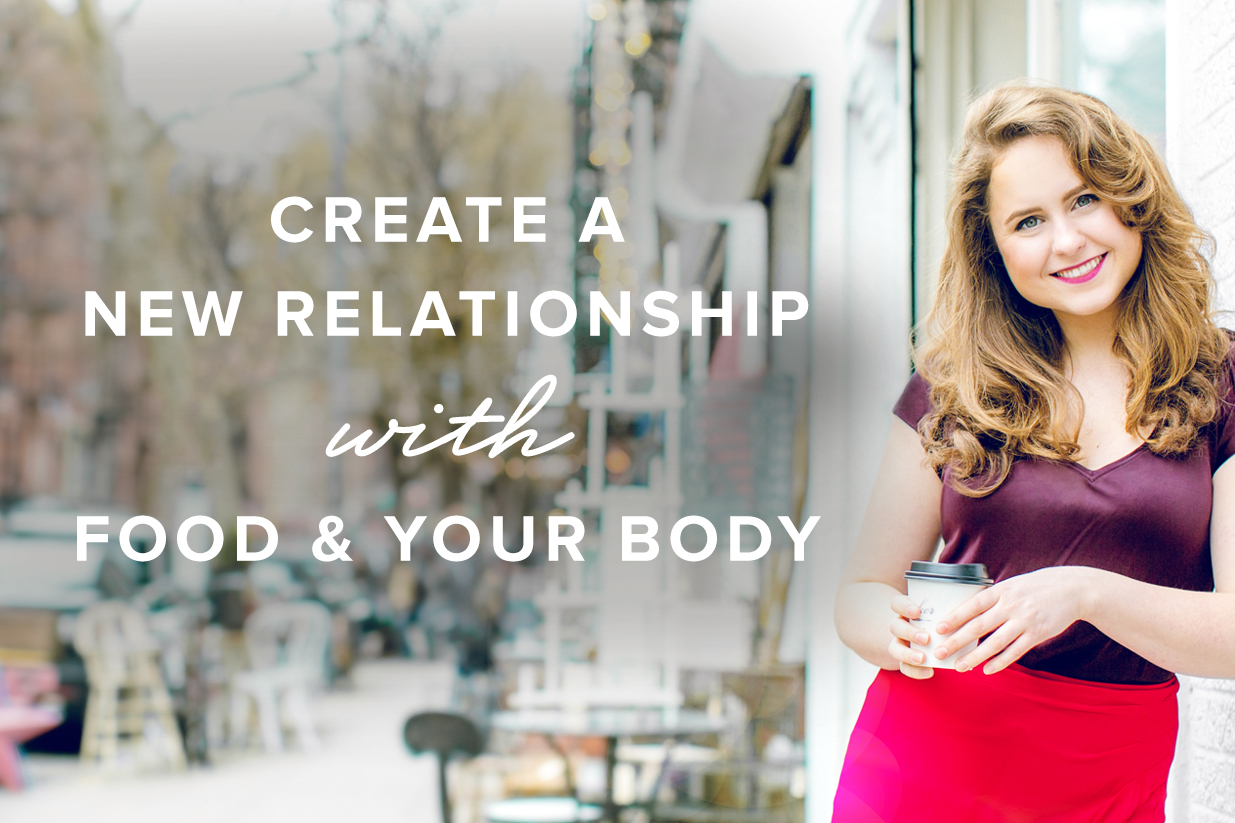The Dark Side of Feminism and Girl Boss Culture

I was sitting at a party and the tradwife trend came up.
Immediate horror and disapproval erupted throughout the group – except for me.
The only question that popped into my mind was, “Is it her choice?”
What’s a tradwife?
A tradwife – short for traditional wife – is a woman who chooses to be a homemaker and allow her partner to support her.
The term tradwife has been gaining popularity on TikTok, as women who have chosen this path share their daily lives, often in 1950s style dresses and full makeup.
If you ask most people – especially women who identify as feminists – whether women should have full choice over their lives, they’d say, “Of course!” as if you’re asking a ridiculous question…
… but a lot of their words and actions – especially toward other women – say otherwise.
The truth is that many people who identify as feminists have internalized misogyny running the show.
Psychologist and ethicist Carol Gilligan and psychoanalyst Naomi Snider dive into this topic in their book, Why Does Patriarchy Persist?
It’s not just about keeping men in power.
 The authors share:
The authors share:
“Women and men, they say, internalize patriarchy without realizing it, pushing aside their best judgment and sacrificing their needs in order to fall in line with how they think they’re supposed to behave.
By not falling in line, they risk sticking out for all the wrong reasons, potentially driving away friends, partners or professional opportunities, ultimately resulting in isolation.”
The topic of internalized misogyny has gained so much traction that the University of San Diego has developed an Internalized Misogyny Scale that gauges a woman’s internalized devaluation of other women.
What is internalized misogyny?
Internalized misogyny can look like…
- Constantly trying to differentiate yourself from other women.
- Striving to be “in” with the boys, and all that comes with that – from social approval to work promotions and raises.
- Suppressing emotions and needs so you’re not seen as “hormonal.”
- Putting down other women you see as weak or too emotional.
- Hiding your feminine side, so you’re not seen as overly sexy or “ditzy.”
- Expecting your energy and mood to be the same throughout the month.
- Pushing through your period when your body is designed to slow down during that time.
Striving to be superwoman against all odds can lead to anti-feminism by “feminists” toward other women.
This can harm women and perpetuate cycles that break down our health.
Unhealthy stress is linked to almost every health condition, from anxiety and depression to heart health issues and infertility. 1, 2, 3
I can say with certainty that this style of “feminism,” and specifically, girl boss culture, have had a huge impact on my health.
How Girl Boss Culture Affected My Health
I was born in the 90s in Brooklyn, New York.
When I was 4 we moved to the Hudson Valley and rented a little white house with a football field-sized backyard, then a meadow, pond, and farm behind it.
It was a fairyland.
I spent my days climbing trees, painting rocks, riding my neighbors horses, kayaking in the pond, and perhaps most notably, using garden shears to carve out a little house between two dense pine trees, complete with separate rooms and a sun deck.
My brother and I were homeschooled, learning from our parents and meeting up with other homeschooled families for special classes and activities a few times a week.

At 10 years old I started public school and began to feel a crushing pressure to succeed.
As a homeschooled kid, I had no idea if I’d be able to keep up, both academically and socially.
The felt sense of needing to push past my needs and my body to succeed permeated everything.
Girl boss culture was at a peak.
It was all about girl power.
Rather than having the differences between boys and girls acknowledged and celebrated, we were treated the same, and often placed in competition with one another, under the guise of “feminism.”
“Anything you can do, I can do better” was the girl power mantra.
Everywhere from the classroom to the soccer field, I was pushed to be just as good as or better than the boys.
At home I was always striving to keep up with my older brother, and to prove my emotional and physical strength to anyone I came into contact with.
I went to lengths to hide my vulnerability.
Then came soccer tournaments, standardized tests, track meets, SATs, college applications, internships, and finding a job.

When I was in college taking full-time classes I was also working full-time at a restaurant and had a part-time internship.
I was up early dashing crosstown to 8am classes at the New School, taking the subway to Times Square for my internship at Teen Vogue, hustling back downtown for more classes, then crosstown to work my East Village restaurant job until late.
I performed well at every turn, but at what cost?
I experienced a roster of health issues, starting in middle school:
- Chronic fatigue
- Chronic digestive issues
- Anxiety
- Amenorrhea
- PCOS
- Birth control nightmares
- Disordered eating
- Anemia
- Fainting
These can all be linked to stress. 4, 5, 6, 7, 8

While I didn’t have any “big T” traumas growing up, I’ve realized that I was in a low to medium grade chronic stress response for much of the time from the age of 10, when I started public school.
The pressure was constant, and my schedule was nonstop.
The truth is that hustling, competing, and suppressing my emotions and vulnerability were never my true nature…
… but they became second nature as a result of my environment.
I developed these patterns as a byproduct of nurture – primarily the public school system I was raised in on the East Coast, and the prevalence of a certain type of “feminism” and girl boss culture.
I don’t regret growing up in girl boss culture.
I don’t regret working hard.
I don’t regret embracing my masculine energy for a time.
But today, I’m seeing the impact of girl boss culture and “feminism” through a whole new lens.
How I’m Recovering From Girl Boss Culture
After living in New York and hustling non-stop until I was 28, I moved to Costa Rica.
Today I live in a little beach town on the Caribbean coast and work 10-20 hours a week as a holistic health coach and wellness copywriter.
I replaced my full-time+ work schedule with beach days sprinkled with a few hours of work, and those few hours have replaced my old full-time salary in NYC.
Sleep is one of my biggest priorities, I bike everywhere, and I eat lots of nutrient-dense food.

This lifestyle change has been hugely healing for me, but it certainly didn’t heal me overnight, and it’s brought new challenges.
It’s been an ongoing process over the past few years, but still, it’s working.
I am more relaxed than ever, definitely more resilient than ever, and my hormonal health is better than ever, which is one of the biggest indicators of health for women.
Along with moving out of the United States, spending more time in nature, and working way less, intuitive eating has been key to recovering from girl boss culture.
Becoming an intuitive eater is one of the biggest and best choices I’ve ever made for myself – and it’s one of the most feminine things about me.
I do not analyze food or my body.
I do not agonize over food or my body.
I do not count calories, carbs, macros, or anything else.
I trust myself, and I trust my divine design.
I trust my body to guide me toward the food I need.
I trust my hunger and fullness signals.

When I chose intuitive eating over 10 years ago, I didn’t know that I would later consider it one of the most radically feminine and feminist choices I’ve ever made…
… and that I would see my entire upbringing in girl boss culture in a whole new light, and step into my feminine nature in a whole new way.
What is true feminism?
True feminism is about choice, whether you choose to be a homemaker who cooks, cleans, and does pilates most days, a business woman who’s in the gym by 6am and the office by 9am everyday, a combination of the two, or something entirely different.
True feminism is about acknowledging the sensitivity that allows a woman to hear her body’s needs, deeply care for herself, receive care from others, and follow her own path.
True feminism respects and reveres a woman’s full spectrum of choice – not just the choices that fall into typical “feminism,” or what I might call old school feminism.

True feminism honors all our possible desires and life paths as women.
True feminism is about honoring our bodies, which are very different from men’s.
True feminism is about aligning with our nature rather than trying to override it.
True feminism is about embracing our vulnerability as much as we embrace our strength.
True feminism is about remembering that softness is strength.
True feminism is knowing you don’t always have to hold it together – it’s safe to fall apart, and you may come back stronger.
True feminism is about embracing all aspects of yourself.
True feminism is about being equal to men, but different.
Very different.
I am not a man.
I am a woman.
A very feminine woman.
A woman who loves…
Delighting in the little things.
Spending time with family.
Dressing very feminine – at times in a way that would’ve been mocked or considered too “girly” when I was in high school or college.
Traveling.
Cooking.
Spending time in nature.
Resting
Nesting.
Dining out.
Shopping.
Receiving gifts.
Being taken care of.
Choosing not to work a traditional job is not anti-feminist…
Receiving support from a partner is not anti-feminist…
Receiving gifts and having things taken care of by someone is not anti-feminist…
Dressing feminine is not anti-feminist…
Being sexy is not anti-feminist…
Having a different type of intelligence or appearing “ditzy” is not anti-feminist…
… if it’s your choice.
If it’s who you are.
If it’s true to your soul.
If it’s in integrity for you, and anyone else who’s involved.

You might be asking, “Well what if a tradwife gets divorced? Then what happens?”
She gets a job, a new partner, family support, or countless other options.
Being a tradwife does not mean you’re void of skills and intellect.
Our circumstances are only as set in stone as we believe them to be.
The power of the subconscious is enormous.
There are endless ways you can be supported and/or support yourself, and we often can’t imagine how we would adapt until we have to adapt.
Did men evolve to provide, and women to receive and nurture?
What I’m about to say may be controversial for some.
I’m going to use a hetero dynamic in this example, but it simply comes down to feminine and masculine energy, which can be inhabited by any sex.
When I refer to men I’m referring to anyone who identifies as a man, regardless of their sex at birth.
When I refer to women I’m referring to anyone who identifies as a woman, regardless of their sex at birth.
If you identify as non-binary or something else, I celebrate that.
The core message here is to honor yourself, your path, and your needs, regardless of societal norms and expectations.

With that said, let’s talk about whether men evolved to provide, and women to receive and nurture.
There’s evidence that says men evolved to provide for women, as hunters, and there’s evidence that says women were right there alongside them, hunting too.
In my experience, there are many men who have a strong natural desire to provide, and many women who have a strong natural desire to receive and nurture.
In modern culture I often see these instincts being suppressed in favor of “feminism.”
I see men and women wilting in mind, body, and spirit as they suppress their natural desires and/or push past their physical needs.
The truth is that not all men have a strong desire to provide, but many do.
Not all women have a strong desire to receive and nurture, but many do.
Providing is a healthy masculine need within many men, and if you’re with someone like this, allowing him to provide is a gift you give him.
Insisting on a 50/50 dynamic or not allowing a man to provide may be emasculating, and may contribute to relationship issues, and/or health issues.
That doesn’t mean women must lay around at the spa all day while men pace the floor of the stock market sweating, but I’ve observed a lot of truth in the idea that men evolved to provide and women to receive and nurture.
Providing as a man and receiving as a woman may be healthy, if it works for both you and your partner.
This is just one dynamic, and one topic I see being automatically judged, or not even discussed for fear of coming off as anti-feminist.
Each couple is different – it’s individual and deeply personal.
How can someone who identifies as a man, but was born with and still has female anatomy, honor his biology if he identifies as a masculine provider?
He can be a masculine provider, but still slow down and nurture himself during his monthly cycle, knowing that it doesn’t make him any less of a man, or any less of a provider.

There are so many ways someone can be a provider, and so many ways someone can receive.
Women can absolutely be providers, and especially today, there are so many feminine ways to make money.
I can think of dozens of women right now in the online business world who are making a great income and have plenty of time and space to care for their feminine nature.
My intention here is not to land on one answer, because there isn’t one answer.
My intention is to speak frankly about a nuanced topic I find endlessly fascinating, and that’s deeply impacted me.
My intention is to address the side of “feminism” that tells women to live in their masculine and keep pushing and performing, no matter how we feel.
My intention is to discuss what’s needed now – ultimately, regardless of evolution but with reverence for biology – and to share my observations coaching women for over 10 years.

It’s undeniable that one of the top root causes of women’s health issues, both mental and physical, is trying to operate like a man.
Today, I want to be treated just as well as a man, but not the same.
This is a topic where I’ve drastically changed my view, since I internalized plenty of misogyny and pseudo-feminism, too.
It would have been hard, if not impossible to avoid, as someone who grew up striving to be successful in New York, where playing along with silent misogynistic structures can feel like the only way to succeed.
This is a call to the women who feel stuck in that paradigm – and so many still do, because it’s deep-rooted and insidious.
While feminism has radically changed the way women live and work, it hasn’t changed our biology or our built-in desires – it’s just taught us to push past them.

Women still need the space to be women.
To be able to rest during our period rather than having to work a 14-hour shift or run a track meet.
To be able to vary our schedule, rather than working a 9-5, which is based on the 24-hour male hormone cycle, rather than the monthly female hormone cycle.
To have and raise children if we choose.
To wake up and do what we desire.
To follow our wild whims and intuition.

As a small business owner, I still feel deeply inspired to do my work, but from a very different energy and in a very different way.
If I didn’t have to work another day in my life…
… I’d still be writing and coaching.
I’d still want to help more women.
If I didn’t need to make money for the rest of my life…
… I’d still be doing this work.
I’m happy that I still feel inspired to be an entrepreneur, but now, my context is completely different, because my core focus is aligning with my feminine nature…
… and that’s changing everything in my life and business for the better.
Did girl boss culture affect you and/or your health?
If you’ve chosen to embrace your full feminine nature today, what does that look like for you?
I’d love to hear from you in the comments below.
Much love,
Lula
References
1. The Role of Chronic Stress in Anxious Depression
2. Psychological Stress as a Risk Factor for Cardiovascular Disease: A Case-Control Study
3. The relationship between stress and infertility
4. Cumulative life stress in chronic fatigue syndrome
5. Stress and the gut: pathophysiology, clinical consequences, diagnostic approach and treatment options
6. Stress and hormones
7. The Interaction between Psychological Stress and Iron Status on Early-Life Neurodevelopmental Outcomes
8. The relationship between clinical characteristics and psychological status and quality of life in patients with vasovagal syncope




